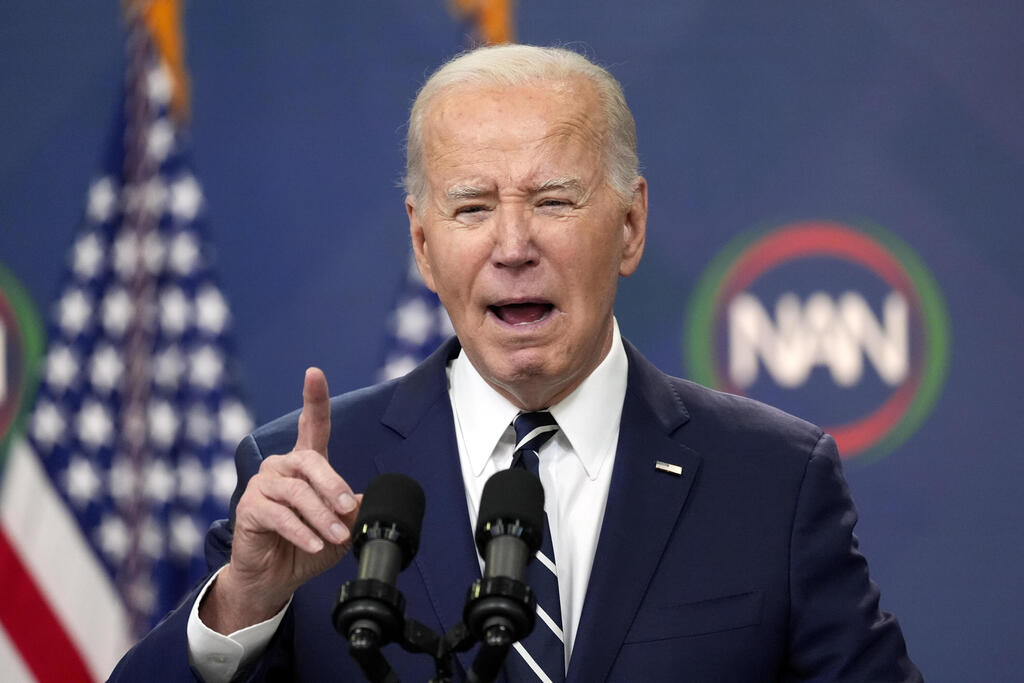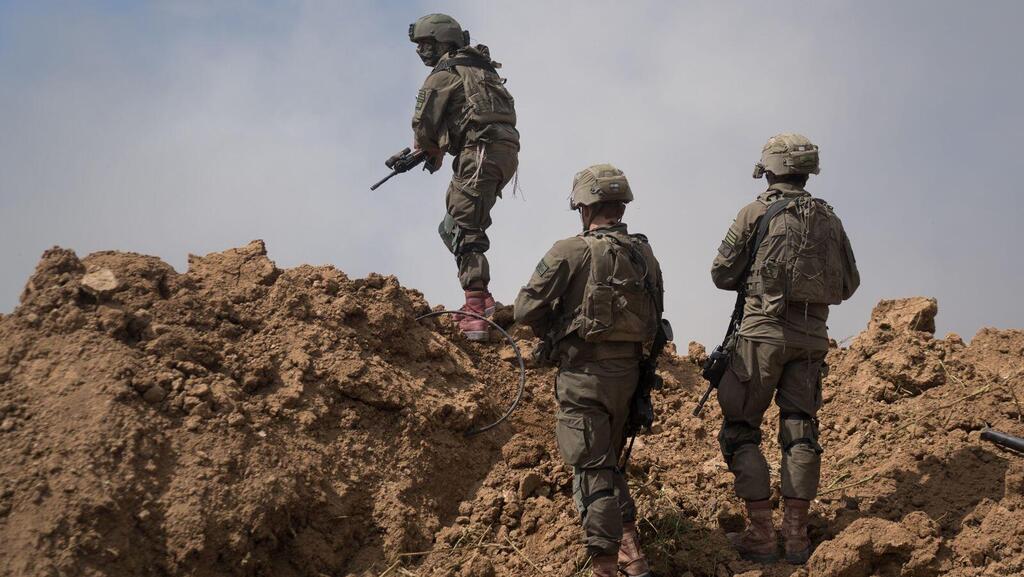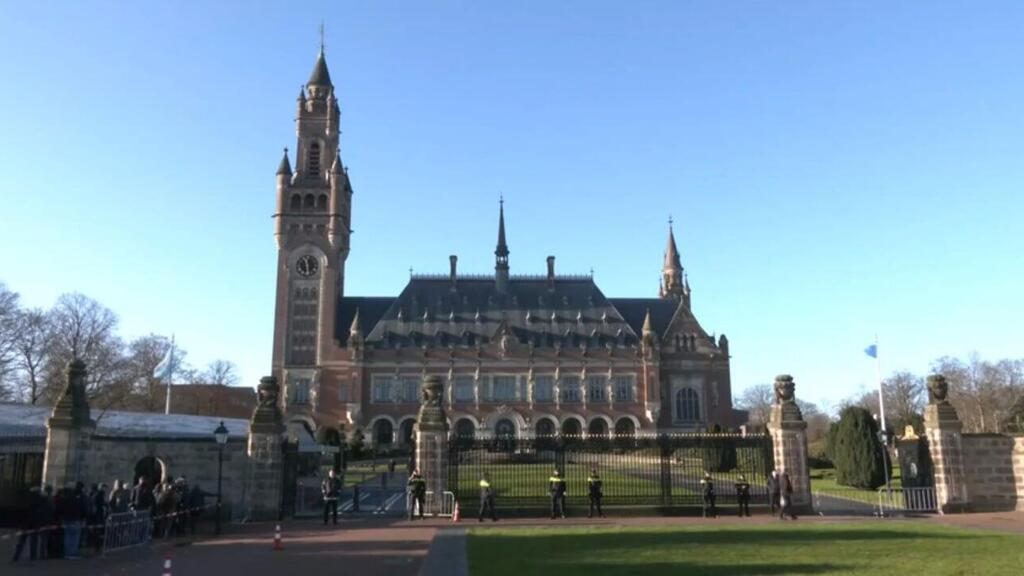It's difficult to explain the severe and far-reaching implications of the potential imposition of sanctions by the U.S. government on the Netzah Yehuda Battalion if the reports on this matter are proven accurate.
This would mean no less than the potential end of the special relationship between Israel and the U.S. and a loophole that could lead to the imposition of international, political, and personal sanctions by states and international organizations on any entity involved in Israeli activity in the West Bank - from Israeli officials, through IDF officers and soldiers, to Israelis living in settlements.
These are potentially dangerous sanctions that could have an impact on the IDF as a whole, the Israeli economy, Israel's law enforcement policy in the West Bank, and Israel's international standing.
The imposition of sanctions on the Netzah Yehuda Battalion will be done under the Leahy Law enacted in 1997. The Leahy Law stipulates that the U.S. shall not provide any aid or have any dealings with a military force accused of serious human rights violations unless it’s proven that the relevant country is taking effective steps to prosecute those responsible in the military unit accused of human rights violations.
Not every violation of human rights justifies the imposition of sanctions under the Leahy Law, only serious violations such as the deliberate killing of civilians, torture, making people go missing, and rape are utilized as a weapon of war. These are the most serious acts that justify the imposition of U.S. sanctions - hence, it isn’t clear what the factual basis is for its severe allegations against the Netzah Yehuda unit.
Over the years, the U.S. has imposed sanctions on various units under this law, mainly those of non-democratic states. For example, sanctions were imposed on an Indonesian army special forces unit accused of carrying out abductions and killing of civilians.
Sanctions were also imposed on military units in Pakistan, Bangladesh, Colombia, Guatemala, Honduras, Indonesia, Mexico, Nigeria, Turkey, and Sri Lanka. In 2023, the U.S. warned Australia that it may invoke the Leahy Law against one of its special forces units, following a report alleging dozens of Australian soldiers were involved in the killing of dozens of civilians in Afghanistan - though nothing more took place in this case.
The significance of imposing these sanctions is essentially a public expression of distrust by the United States in the IDF’s military judicial system and its ability to enforce the law on its soldiers.
In doing so, the U.S. undermines Israel's main defensive claim in the international arena – the claim of complementarity, according to which there’s no room to carry out criminal proceedings in international jurisdictions against Israeli officers and politicians, since Israel's law enforcement and judicial system are independent and operate in accordance with democratic values of the rule of law and human rights.
As long as a country demonstrates that it has a reliable and independent law enforcement system capable of addressing violations of international law, there’s no place for international judicial intervention in the country.
The U.S.’s decision to impose sanctions on an IDF unit under the Leahy Law marks a precedent, so many other countries - including the European Union, as well as international bodies including the International Criminal Court at The Hague or the International Court of Justice - will conclude that Israel's law enforcement system has failed in the West Bank, and it is therefore necessary to exert strong international sanctions against its citizens involved in Israeli activity in the region.
Netzah Yehuda Battalion operates at Beit Hanun
(IDF)
The use of sanctions against the Netzah Yehuda Battalion is part of a very worrying trend of the Biden administration’s utilization of these tools against Israel. In 2021, two Israeli cyber companies - NSO and Candiru - were blacklisted in the U.S. as bodies posing a threat to national security and violating human rights. This step dealt a severe blow to the Israeli offensive cyber industry, which had thrived before that point.
Sanctions have recently been imposed on Israeli settlers and various organizations such as the far-right association Lehava. However, the imposition of sanctions on an IDF unit is a significant and serious escalation, as it marks the first time the U.S. imposes sanctions on an official Israeli body for actions carried out in Israel, which were supposed to be handled by Israeli law enforcement authorities.
 Dr. Matan GutmanPhoto: Shlomi Yosef
Dr. Matan GutmanPhoto: Shlomi YosefThe implications of the new policy will be dramatic. It seems the U.S. has decided to use harsh legal tools to bring about a dramatic change in Israel's policy toward the Palestinians, but the international repercussions on Israel will be painful, and if this trend continues, the day when international arrest warrants will be issued against the prime minister, Israeli officials, and senior Israeli officers isn’t far. Therefore, Israel needs to do everything it can to prevent the U.S. sanctions being imposed on the IDF.
Dr. Matan Gutman is a lawyer, Ynet's legal analyst, and an expert in constitutional law, administrative law, and human rights law.






